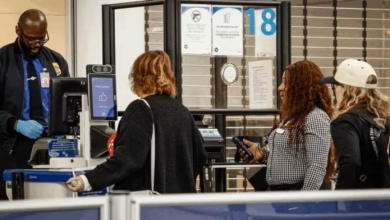Germany Stirs Tensions with Neighbors by Tightening Migration at Land Borders

- Germany tightens border checks at all land borders.
- Aimed at combating terrorism and cross-border crime.
- Neighbors like Poland, Greece, and Austria disapprove.
- Measures follow a recent attack in Solingen by a Syrian linked to ISIS.
Germany has introduced new controls at all of its land borders as part of a broader crackdown on migration, affecting the Schengen Zone’s free movement and provoking discontent among European neighbors. Starting Monday, Germany will extend its border checks beyond those with Austria, Switzerland, the Czech Republic, and Poland to include France, Luxembourg, the Netherlands, Belgium, and Denmark.
Under the new rules, which will be in place for an initial six months, Germany can deny entry at all land borders, according to a statement from the Interior Ministry. This move represents a significant shift in Germany’s migration policy.
Previously, under Angela Merkel’s government, Germany welcomed over one million migrants during the 2015-2016 crisis. However, amid rising far-right opposition and increased pressure, the country is now adopting stricter measures similar to those of other European nations.
Additionally, Germany recently finalized a controlled migration agreement with Kenya, aimed at allowing skilled and semi-skilled Kenyan workers to enter Germany, marking a nuanced approach to its migration policy.
Announcing the new measures, Interior Minister Nancy Faeser stated that Germany is “strengthening internal security through concrete action” and maintaining a “tough stance against irregular migration.” She indicated that the controls are intended to protect German citizens from Islamist terrorism and serious cross-border crime.
This decision has tested European unity and drawn criticism from Germany’s neighbors. As a member of the Schengen Area, Germany is allowed to reintroduce border controls temporarily under EU rules if faced with a serious threat to public policy or internal security, though this is meant to be a last resort.
Poland’s Prime Minister Donald Tusk criticized the tighter controls as unacceptable and called for urgent discussions with affected countries. Greece and Austria have expressed concerns about accepting migrants rejected by Germany.
In Germany, the Council for Migration warned that the new policy might breach EU law, describing it as a dangerous form of populism in the migration debate. The Council called for a more evidence-based discussion on migration policy across Europe.
The German government, led by Chancellor Olaf Scholz, has faced criticism for not addressing uncontrolled immigration effectively. The country has tightened its migration policies in response to increased arrivals, particularly from the Middle East and Ukraine, and recent terrorist attacks.
The new security measures follow a fatal attack in Solingen on August 23, where three people were stabbed by a 26-year-old Syrian man with alleged ISIS links, who was previously slated for deportation.






